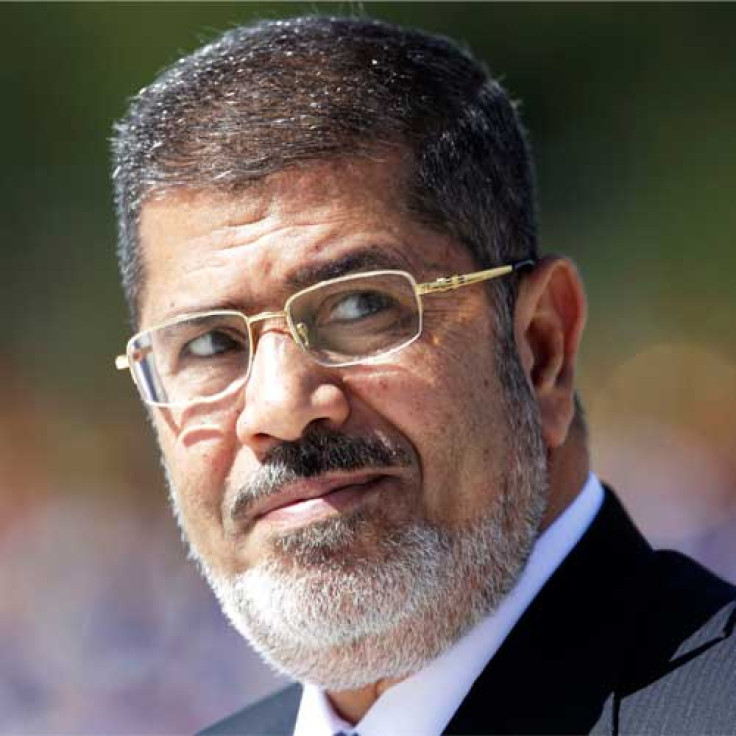Egypt: Bad Weather Prevents Morsi Attending Trial

The trial of Egypt's former President Mohammed Morsi has been adjourned to February 1, after he was unable to attend the second session on Wednesday.
The helicopter scheduled to transport Morsi to the court could not take off due to bad weather conditions.
State media had initially said Morsi was already at the court on Wednesday morning; however, state news agency Mena later said his arrival had been delayed by bad weather.
The weather conditions were not so adverse to affect flights, reporters said.
The city airport's website did not mention any weather-related cancellations.
Despite Morsi's absence, the trial session proceeded as 14 other defendants, along with the former president, have been accused of inciting the killing of protesters in December 2012.
One of the defendants briefly interrupted proceedings with an outburst.
"This is revenge – political revenge," shouted El-Arian, "We've been here since 1.30 in the morning. It's unfair and unconstitutional."
Prosecution lawyers shouted "shut up" before asking officials why he had been allowed to speak before proceedings started.
Speaking after the short session, lawyers for the victims' families said they were confident about the strength of the evidence against Morsi and his co-defendants. "There are 78 witnesses and the first 20 are from the police and the army," said Ramy Ghanem, one of the lead lawyers.
The Muslim Brotherhood's leader also faces other charges including colluding with foreign militants against Egypt and involvement in a terrorist plot related to his escape from prison in 2011. He is due to appear in court again to face these separate charges at the end of January.
Up to 20,000 security personnel were on high alert for Morsi's court appearance on Wednesday, according to the interior ministry.
Morsi's supporters protested against the trial, claiming that he and the other members of the Muslim Brotherhood are innocent.
Morsi was overthrown in July 2013 by a military coup d'état.
Morsi's ousting has led to some of the worst violence in Egypt.
At least 900 people, most of them Morsi's supporters, were killed in August 2013 after the authorities smashed two protest camps set up in Cairo.
© Copyright IBTimes 2024. All rights reserved.






